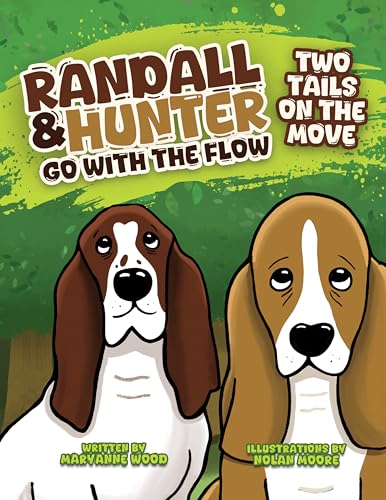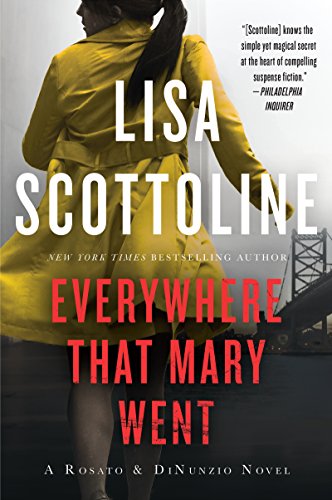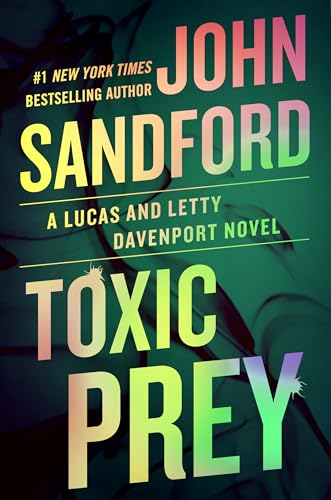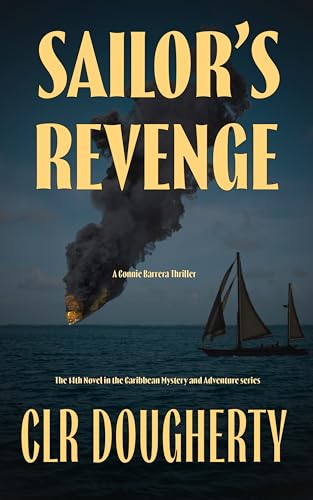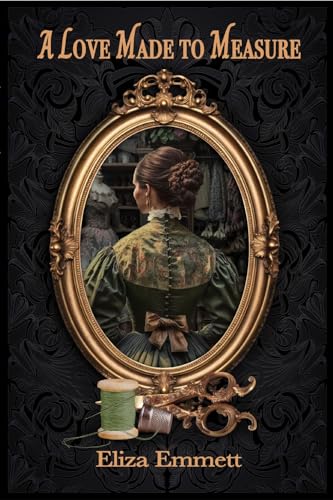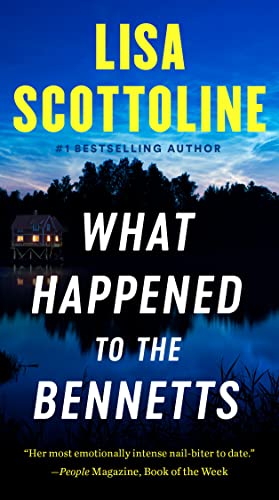By Stephen Windwalker
Editor of Kindle Nation Daily ©Kindle Nation Daily 2010
New Kindles, old Kindles, it doesn’t matter. Our job with the Free Kindle Nation Shorts program is to bring the world’s great readers together with the world’s great writers, regardless of whether they are established authors like Paul Levine, J.A. Konrath, and Elizabeth Stuckey-French or emerging stars like Stacey Cochran, Deborah Wallis, or today’s featured scribe, Andrew Kaufman.
Kaufman’s title, While the Savage Sleeps, tells you that you might want to leave a few extra lights on as you start reading this generous five-chapter excerpt. Here’s the set-up:
TWO STRANGERS
Cameron Dawson’s got a past he can’t seem to shake, but he’s hoping this time will do it. He’s moved back home to Faith, New Mexico and taken a job as assistant sheriff. What he doesn’t realize is that his newest nightmare’s about to begin: strange things are happening. Dangerous, deadly things. People are disappearing, and for others it’s far worse …
DISTANCE SEPARATES THEM
Miles away in Albuquerque, Kyle Bancroft’s life is spinning out of control. She’s seeing, hearing, and dreaming things she can’t explain: flashbacks to World War II and an eerie hospital ward with locked doors, empty gurneys, and guttural screams. To make matters worse, a ghostly, green-eyed girl is complicating Kyle’s visions with an urgent message: time is running out.
A DARK SECRET CONNECTS THEM
Kyle’s otherworldly encounters are driving her straight toward Faith, where she and Cameron will need to find out whether the child speaking from the spirit world is dangerously evil … or trying to help them uncover an explosive secret kept locked behind closed doors for more than fifty years.
A VOICE FROM THE GRAVE WILL DRAW THEM TOGETHER
While the Savage Sleeps is a fast-paced thriller where forensic science meets paranormal investigation. It will keep you on the edge of your seat and turning pages from the opening page to the gripping conclusion.
Scroll down to begin reading now
* * *
An Excerpt from
While the Savage Sleeps
by Andrew Kaufman
Copyright © 2010 Andrew Kaufman and reprinted here with his permission
PROLOGUE
Far beyond the rough-hewn mountaintops, beyond the pathless desert flowing with cacti, yucca, and sagebrush, two stony peaks rise through the air like massive, chiseled arms reaching for the heavens.
At first glance, they can almost pass for mirror images of each other; but as you steady your gaze and narrow your focus, the illusion begins to fade-so too, do the similarities, and it is there you find that the two are nothing alike.
High River Peak is green, picturesque, and well-traveled, its swift-moving rapids a sure bet for those seeking recreation as well as reprieve from New Mexico’s searing summer heat.
Sentry Peak is its antithesis.
Vacuous, dismal, and barren, it’s a no-man’s-land. The only sign of life is an old and abandoned six-story building resting along the easternmost bluff; although, rest would hardly describe what it does-it looms, much like a hungry vulture eying its prey: imposing, hostile, imminent.
There is one thing the two peaks have in common, and that is Faith.
Tucked away like a well-kept secret, Faith, New Mexico lies nestled directly between them. It’s the kind of place, where, if you didn’t know better, you’d almost swear time stood still. No fast food chains here, no superstores, no multiplex movie theaters-everything is still mom-and-pop-operated. Residents dwell in cozy pastoral farmhouses passed down through generations, white sheets sway on clotheslines-wiggling and puffing to the commands of a fitful wind-and people get their milk, not at the corner convenience store, but from cows grazing just a few hundred feet from their front doors.
Highway Ten, the region’s time-honored thoroughfare, edges its way along the town’s outskirts. It captures the classic image Madison Avenue has, for years, tried duplicating in both TV and print ads: terrain dominated by flat, dusty stretches of sun-beaten blacktop, along with nostalgic-looking filling stations and greasy-spoon diners, each decked out in luminous, wandering neon. You can almost hear the scratchy old vinyl 45s spinning in the background as an unforgiving sun bakes the midday air, forcing temperatures to teeter just a few degrees beyond livable. It’s not Route 66, but it’s close, and Faith is about as apple pie as any town can get without tasting too saccharine.
The much-celebrated annual fair and rodeo begins on the Fourth of July, an unofficial induction to the dog days. Arcade games bang and clang, organ music swells, and auctioneers prattle. Through the causeway, the smell of fried grease and cotton candy locks horns with the moist, earthy tang of livestock, while amusement park rides dance in the distance against a moonlit sky. The whole scene is noisy, chaotic, and in its own sort of way, enchanting-a rhythm of life, effortlessly weaving together into one pleasing rhapsody. This is Faith at its best: a picture-perfect snapshot of good old Americana.
Not for a second could anyone imagine that the picture had another side. Nobody knew that beneath the broad smiles, the beaming faces, and the stirring moments-beneath the surface-hid something else.
Chapter One
Saddleback Ranch
Faith, New Mexico
The clock struck midnight.
Something in the air seemed to change. Something sudden, mysterious, and filled with bad intent. Wind-driven clouds gained momentum, swirling into the path of a fiery moon.
What once was settled began to stir. Where there had been order, there was unrest, and from the gathering darkness, new life emerged.
The sort born of pure evil.
Deputy Bradley Witherspoon felt an odd chill run through his body but didn’t know why. He’d parked along a shadowy frontage road running parallel to the Saddleback Ranch, one of Faith’s oldest and more established cattle producers.
Barely drivable and punished by years of neglect, deputies often referred to the old dirt path as the Refueling Station. Translation: the perfect spot to stay beneath the radar and catch-up on much-needed sleep. For those working swing shift, it seemed a good place to find refuge and restore sanity-or at least meet up with it for a brief visit.
On a scale of slim to none, chances wavered near zero that anyone would bother making the trip to check on the deputies’ whereabouts. One needed only travel a few feet down the pitted path to understand why: a vigilant pack of cattle dogs kept close watch over the property. More than capable of making themselves heard, they remained on the lookout for the first sign of unwelcome company. This gave the deputies enough warning to wake up and look sharp in the unlikely event someone did arrive to check on them. With all those safeguards, you might think it difficult to catch a dozing deputy dozing off.
You would be wrong.
Witherspoon caught himself nodding off several times before drifting toward a more restful state of sleep that didn’t last long. He woke to the sound of stirring behind his seat, a rustling noise, like plastic bags rubbing together. Before he could turn around and investigate, he took a swift blow to the head from something cold and heavy, something metal. Right away, he felt a warm liquid trail from his ear.
Blood trickled alongside his neck, then into his lap where it began to pool.
He tried getting his bearings, but another piece of thick metal slammed into him, this time just below his Adam’s apple; it coiled around his neck, pulling him straight back, jerking him hard against the headrest.
Panic struck. Witherspoon reached up instinctively with both hands, choking for air, trying frantically to pry the hook loose. But before he could free himself, the other hook came swooping down, landing inside his mouth, piercing skin, and driving a hole through the side of his cheek. Like a catfish snagged on a line, he felt his jaw jerk wide open, far beyond its normal limits. The skin on his neck and face tightened as both hooks worked in unison, ratcheting into flesh, stretching it in directions it was never supposed to move.
Bradley Witherspoon understood his life was about to end. He knew each shallow breath could be his last. Tears rolled down his cheeks as he thought about his wife, his kids, about never seeing them again. Then he prayed for death to come quickly and end his pain and suffering.
No such luck.
The deputy felt a sharp tug, followed by an intense rush of pain as his captor yanked him between the two front seats and toward the back. The assailant pulled him out the rear door-hook still lodged inside his cheek-and launched forward, leading the deputy by the mouth. Witherspoon let out a shrill, childlike scream. His attacker answered back by jerking the hook harder, continuing to drag him.
In a haphazard, clumsy manner, Witherspoon scrambled across the ground on all fours in a desperate attempt to keep pace. The slower he moved, the more intense the pain became as the forward movement tugged at his flesh. He wanted to look up at his assailant but could not. The hook inside his cheek assured it. Turning his head would have driven the hook deeper into his skin.
Witherspoon could not keep up any longer. His body was just too weak. He stumbled, lurched forward, and felt his skin split and separate as the hook sliced across his cheek, shifting position, and penetrating deep into the roof of his mouth.
From there, it moved higher into his sinus canal. Blood began draining into the back of his throat. He choked as it spilled out from his mouth and down the front of his chin.
Their journey ended at the foot of an old feed shed topped off with a rusty metal roof. The assailant grabbed Witherspoon by the shoulders, pushed his heel into the small of his back, then shoved him forward several feet where he slammed into the ground, face first.
He tried to get up but the attacker leaped on top of him. Grabbing a lock of hair, he yanked the deputy’s head close to his lips and in a breathy voice whispered, “Just curious: how’s it feel to know you’re about to die?”
Witherspoon recognized the voice. He felt his gut tighten, then a warm, wet sensation slowly crawl between his legs.
Chapter Two
Saddleback Ranch
Faith, New Mexico
When Assistant Sheriff Cameron Dawson arrived on scene, he barely recognized the dark, obscure object hanging stiffly in the distance; it looked like an old blanket left out to dry. But as he drew closer, he began to see what-or who-it was. As soon as he made the connection, he felt the bile rise up, burning through his throat.
The scent of death hung heavy in the air, a coppery, metallic odor-blood, and far too much of it. The corpse dangled upside-down from the roof of the shed, suspended by a hook lodged into the scrotum.
Cameron gazed at the two deputies standing guard, their expressions somber, then returned his attention to the victim. The weapon of choice: a pair of hay hooks-thick, curved metal fashioned into crooks with spear-like tips, and at the other end, heavy, wooden grips resembling shovel handles with leather cuffs draped around them for better grabbing power. Ranchers use the implements to move large bales of hay weighing more than seventy-five pounds, thrusting the sharp, honed hooks into each end to lift them.
The killer had stripped the body nude, exhibiting it in a manner so peculiar, so hideous it barely looked human. Bent in two at the waist, it gave the illusion of being half its normal size. As Cameron moved his gaze downward, he noticed the ankles and wrists were sliced vertically, then hogtied. This caused the spine to bow and the body to bleed out, while giving it a grotesque, humpbacked appearance. The hook lodged into the groin came straight up between the legs, past the buttocks, with a rope tied to the handle. The other hook stuck out of his mouth, which hung wide-open, leaving the eerie impression of an eternal, silent scream.
Cameron moved closer. On the back of one arm, a dried ribbon of blood ran down past the wrist to a drooping hand, and then alongside the index finger. From there, it had broken away, where it joined a large pool on the ground.
The killer had created a crude hoisting device to lift the body, tying one end of the rope to the steel push-bars on Witherspoon’s squad car. The other went toward the shed, where it looped over a steel-beamed roof support, then straight down to the hook’s handle. The perp only needed to back the vehicle up, hoisting the body, where it remained suspended in midair.
This was not the Bradley Witherspoon Cameron remembered, athletic, vibrant, good-looking. This object-this tangled mass of flesh hanging before him like a side of beef-bore no resemblance to the man with whom he’d worked.
Cameron’s horror turned to disgust, which quickly erupted into rage. He looked up at the deputies almost as if demanding an explanation for what had happened.
They answered back with blank, hesitant expressions, breaking eye contact, looking off to the side-anywhere but across the path of his glare. Realizing he’d unnerved them, he looked away.
Cameron moved behind the body, and something instantly caught his attention. He tilted his head, knelt, then focused on a spot just below the right rear shoulder blade.
“Sir?” offered Deputy Jim Avello, wondering what his boss had seen.
Cameron didn’t respond. He just stared, eyes narrow, head jutted forward, gaze immovable.
“Sir?” Avello repeated.
“Jim,” Cameron finally said, his attention fixed on the body. “Go and get the metal briefcase from my car.”
Avello hurried toward the vehicle, pulled out the briefcase, then came back.
“Tweezers,” Cameron ordered, holding out his palm, eyes still focused on the one spot.
Avello flipped open the briefcase, found the tweezers, and placed them in Cameron’s hand.
With great care, the sheriff moved the implement toward the victim, mindful not to disturb the dried blood, debris, or scratch marks on the skin. He pinched something, then held it up to the light.
Resting between the tweezers was what appeared to be a tiny gemstone fragment, black, and no bigger than the tip of a ballpoint pen. Cameron wiped it clean on his pant leg, then tilted it back and forth, watching it twinkle in the reflected morning sunlight.
“Evidence bag,” he said, loudly, to no one in particular.
Avello reached inside the briefcase, producing a clear plastic bag. He handed it to Cameron who lowered the chip inside, then sealed it.
Avello glanced up at him.
Cameron said, “Looks like our killer left us a little surprise.”
Chapter Three
City Morgue
Faith, New Mexico
A chill cut through Cameron’s body, making goose bumps swell along his arm. He shivered and rubbed a palm against his skin, wondering if his reaction was from the room’s coldness or because he was standing over Bradley Witherspoon’s remains.
Cameron’s boss, Sheriff Frank Donato, did not appear cold at all-he’d come dressed appropriately, wrapped in a cloak of despair. As Cameron’s shock began to fade, Frank’s had just begun. He looked up from the body toward Cameron, trying to gauge his reaction, then let out a heavy sigh, one that seemed to express what he could not say. The sheriff’s department was a family, and a close one. They’d just lost a brother in the most violent, brutal way imaginable … and that wasn’t all.
Also gone was the sense of security they’d once enjoyed while protecting and serving their community. There had never been much reason to worry about their safety before-not in a town as small as Faith; it just wasn’t a concern. The deputies knew they faced potential dangers on the job, but that possibility seemed remote.
Now Bradley Witherspoon’s murder had changed that.
As for the locals, the word homicide might as well have been part of some foreign dialect. The only murders any of them had ever witnessed were the kind they watched on television. Things like this happened in other places. Not in Faith.
Theirs was a peaceful, close-knit community, the kind where everybody seemed to know one another, if not on a first-name basis, then certainly by sight, where a trip to the local diner felt more like a social event than a meal. The victim being a sheriff’s deputy made matters even worse. After all, if the person who was supposed to protect them wasn’t safe, where did that leave them?
Earlier that morning, Frank had to perform a duty he hoped he’d never have to do: tell a family member their loved one was killed on the job. As soon as Bradley’s wife opened the door and saw Frank’s expression, she knew something horrible had happened. He watched her cheeks go from rosy-red to lily-white within seconds, her expression turn blank. She collapsed into his arms, burying her face in his shoulder, and letting out an agonizing wail.
For Frank, it all brought back memories of Bradley as a rookie-so young, so green; but Frank had watched him develop into a man, one of the most competent, dependable deputies the department ever had. Not only did he see him grow as a deputy, he also saw Bradley mature in his personal life too, as a husband, and then a father to two great children.
So much to live for, Frank thought. All of it gone. Just like that.
The most tragic irony of all: Witherspoon was murdered during the last few hours of his shift-one he wasn’t even supposed to be working. Another deputy had called-in sick at the last minute that evening, and Witherspoon had offered to take up the slack. That was typical. He was always trying to help out wherever he could.
Sadly, the reward he’d gotten for his generosity, at least in this case, was death.
The corpse lay on a flimsy stretcher covered by a thin, white sheet. Frank stared at the shapeless form for several minutes, preparing to view what was just beneath it.
He grabbed the cloth; it felt cold against his clammy palm, as thick and heavy as a wet blanket. Then, he pulled the sheet back, revealing the head and upper torso. He cringed.
Witherspoon’s face looked so disfigured that Frank barely recognized it. The upper lip was busted open, a gash running vertically toward the nose, much like one sees in photos of children with cleft palates. But that wasn’t the worst of it. His left cheek was torn as well, leaving a large flap of skin hanging beneath it. As a result, the entire inside of his mouth was visible from the side, leaving, in effect, half his face missing-just teeth and jaw exposed.
Frank yanked the sheet back over the body and looked away toward the opposite wall.
Cameron didn’t say anything. He knew what Frank was feeling. He’d experienced the same thing earlier that morning when he first saw Witherspoon hanging from that shed, a strange combination of sadness and revulsion twisting inside him. The two emotions had not mixed well for Cameron, and judging by the look on Frank’s face, were not sitting well with him, either. This murder was so disturbing, so senseless, but most of all, so infuriating.
“What’s the timeline?” It wasn’t a question as much as a demand.
“Last time anyone heard from him was just before midnight,” Cameron replied.
“They started looking for him around five when he didn’t answer his radio … found him around five forty-five. That’s all we have.”
Frank pursed his lips and nodded, expression stoic, eyes fixed back on the body.
The way he folded his arms looked awkward, as if he didn’t know where to put them. “Got any theories?”
Cameron looked at his boss, then up toward the ceiling. His eyes appeared wet, and Frank couldn’t tell if it was from sorrow or exhaustion. He decided it was probably both. “I just don’t know, Frank. This goes so far beyond anything we’ve ever seen …”
He paused, started to speak again, then shook his head in frustration.
Frank nodded toward the body. “There’s some kind of pathology at work here, you know.”
“The way he was put on display,” Cameron agreed, the last word sounding as if he’d tasted something bitter. “Like the killer was proud of himself, showing off. Strung him up like some kind of prized catch.”
Frank looked up at Cameron. “The thrill of the hunt. A textbook case of sociopathic showmanship.”
“Yeah, but something else.”
“What’s that?”
“The weapon.”
“The hooks?”
“It shows he improvised, grabbed whatever was handy,” Cameron said.
“A disorganized kill.”
“Has all the earmarks.”
Frank lowered his gaze at Cameron, then furrowed a brow. “I see where you’re heading, and I don’t like it.”
“I’m not saying we could have the start of serial killer, but I will say one thing-there’s something about this that bothers me, Frank, really bothers me.”
“Well, yeah, judging by the way he was left-“
“More than that, even. It’s the killer’s motivation.”
“Motivation?”
“I’m willing to bet this wasn’t just about murder.”
Frank looked back down at Witherspoon’s body, then up at Cameron. “What else is there?”
Cameron paused for a moment. “I think he was sending out a message … and loving every minute of it.”
Chapter Four
Filbert Train Station
Faith, New Mexico
The old brown pickup sat parked along the tracks near the intersection of Quincy and Baseline Roads. That’s where it was most Friday evenings around this time, and that’s where you could find Jet Stevens-planted right behind the wheel.
He liked to watch the trains go by, had been doing it for as long as anyone could remember. Said it helped him wind down. As for those who knew him, most would have agreed: if he were any more relaxed, he’d probably be fast asleep.
Jet and his family were as firmly rooted in Faith’s historic landscape as the trees that stretched across its dusty plains. His great-grandfather, Samuel Stevens, was one of the original settlers. After the war in 1846, railroad companies began laying tracks across the state, and the cattle industry boomed. Sam Stevens got in on the ground floor and cashed in big, becoming one of New Mexico’s wealthiest cattle barons. The family had owned the Saddleback Ranch ever since, and ever since, the money had been flowing.
But you wouldn’t know that by looking at Jet-he’d been driving the same beat-up Dodge for as long as anyone could remember, still wore the same tattered cowboy hat that looked as if the truck itself had backed over it a few times.
Six feet tall and about 165 pounds, Jet had rough-and-tumble good looks combined with dark skin, dark eyes, and even darker hair. Rumor had it he was part Apache, but nobody dared approach the subject with him; it was dangerous territory, strictly off-limits. Jet’s dad, it seemed, had trouble in the sexual discretion department-he was presently working on his fifth marriage-and his escapades in and around Faith were legendary. It was suspected by some, common knowledge to others, that Jet himself was the product of one of those romps. Many figured it was also the reason he and his father did not get along.
Cameron pulled alongside the truck, got out of his car, then slid up into the passenger seat. Once inside, he stared out through the windshield. Jet didn’t bother looking at Cameron; he was too busy watching the tracks, his only visible movement a toothpick shifting from side to side in his mouth.
The sound of clanking glass finally broke the silence as Jet reached into his cooler and produced two frosty bottles of beer. Gazing off into the distance, he dangled them in the air, toothpick still sliding back and forth.
Cameron grabbed one. He screwed his face into a tight grimace, struggling to keep the bottle from slipping in one hand, while twisting off the top with the other. Once removed, he held the cap up, turning it around, studying it, and said, “Figured you’d be here.”
Jet was still watching the tracks. He reached for the toothpick, gave it a few turns, then extracted the mangled end from between his lips and replied, “If my name is Jet and it’s Friday night-then you know I’m here.”
Cameron acknowledged the comment with the slightest grin, then looked down at his bottle and started peeling the label.
Jet said, “Keepin’ busy these days, I see.”
“Busy …” Cameron replied, shaking his head, staring at the floorboard. “Busy doesn’t begin to describe what I am. Crazy-now that’s more like it.”
Jet brought the bottle to his mouth, but instead of taking a sip, produced a combination nod and shrug, as if confirming his own thought. “Got a murdered deputy … people runnin’ around, lookin’ as nervous as bastards at a family reunion.
That’ll make you crazy.”
“So to speak,” Cameron said.
“Weird, though, huh?”
“What’s that?”
“The whole thing … what happened.”
“Weirder than weird,” Cameron said, watching a car drive past. The reflected sunlight cast an orange glow across his face. “And right there on your ranch.”
Jet was mid-gulp when he stopped, squeezed his eyes tight, then shook his head,
looking as if he’d just swallowed vinegar. “Mmm. Not my ranch-my daddy’s ranch. Ain’t mine.”
Cameron studied Jet for a few seconds, thinking before speaking. “Didn’t happen to see anything that night there, did you?”
“Anything, like what?”
“You know, anything unusual … out of the ordinary. See anyone walking around? Anyone who shouldn’t’ve been there?”
Jet looked at Cameron briefly, then out his side window, slowly shaking his head.
“Naw. Ain’t nobody goes up that road, ‘cept for the deputies. No need to. Doesn’t go nowhere. Everybody knows that.”
A train finally rolled past, just a few freight cars and a flatbed heading out of town.
Jet watched with mild interest, following them until they moved out of sight, then tossed his empty bottle into the back seat where it clanked against a number of others.
“Well, somebody found reason to be there that night,” Cameron said, “and that reason was to kill Witherspoon.”
“Uh-huh. That’s for damn sure … figure someone had a score to settle … wanted to even things up.”
Cameron was about to take a sip but stopped, eying Jet with interest. “Why you say that?”
“Nothin’ special,” Jet said, attempting a casual shrug. “Just guessing, is all.”
Cameron relaxed slightly: Jet didn’t have any concrete information. He put his bottle in the cup holder, spinning it around a few times, staring at it. “Jet, I know you said you didn’t actually see anyone hanging around there that night, but did you see anything … anything at all?”
“Anything at all …” Jet said, repeating Cameron’s words as if it would somehow give them more meaning.
“Maybe see something unusual later on that seemed out of place, like it didn’t fit … didn’t belong? Something like that?”
“Naw, not really.”
“Not really, or not at all? Think hard, Jet. It’s important.”
Jet was now moving his eyes back and forth along the dashboard as if following a thought, then stopped like he’d found it. He looked at Cameron. “Well, there was … but naw. That wouldn’t be nothin’.”
“What? Tell me. What is it?”
Jet pushed the brim of his hat back an inch or two, scratched the part of his head now exposed, deliberating on a thought before speaking. “Found something on the ground later that day. Figured one of the deputies tossed it. But now that you mention it …”
“What was it?” Cameron asked.
“Slip of paper.”
“What was on it?” Getting information here was like pulling teeth.
“Your department’s name … and a phone number.”
“Do you have it?” asked Cameron, anxiety in his voice despite his best efforts to conceal it. “Did you keep it?”
Jet thought for a moment. “No, but I think I know where it might be.”
“Where?”
Jet gave Cameron a lingering look, his mouth pulled tighter on one side. Opening his door, he shoved a leg through, then stepped out of the truck. As he walked toward the back, Cameron jumped out on his side as well, following quickly.
Both stared into the bed. There were more empty bottles, some ropes, an old saddle.
But no note.
Still gazing into the bed, Jet shrugged, cupped his palm over the crown of his hat, tilting it back some. “I threw it back here. Guess it blew out.”
Cameron folded his arms and rested them on the bed railing, releasing a long sigh.
“Do you remember the numbers, Jet, any of them?”
Jet looked at the ground, kicked some dirt. “The first three numbers were, five-seven-one … don’t remember the rest.”
“Five-seven-one,” Cameron repeated, knowing it meant very little. There were only two exchanges in Faith, that, and five-six-two. Without the rest, connecting them to something significant would be next to impossible. “And you’re sure you don’t remember the others?”
“Naw,” Jet replied, then threw his hands up, “Wish I did.”
Me, too, Jet, Cameron thought. Me, too.
Chapter Five
7543 Sunshine Way
Faith, New Mexico
Cameron checked with each of the deputies on the scene after Witherspoon’s murder. None of them knew anything about a slip of department stationary bearing those numbers; that meant it could very well have belonged to Witherspoon, maybe even have fallen from his pocket while he was murdered.
A potentially valuable piece of evidence, lost. Just the thought of it made Cameron’s gut tighten into a fist-sized knot.
Whether or not the paper was relevant to the crime was anyone’s guess, since finding it would be next to impossible, and a number with the five-seven-one exchange would only narrow things down to about half the town.
Turning his focus toward new evidence, Cameron thought about his next step, probably the hardest one of all: to speak to Witherspoon’s wife.
Bradley’s house was a modest-looking ranch-style home located only a mile or so from the sheriff’s station.
Cameron arrived just as another visitor was leaving. Witherspoon’s wife, Shelby, stood in the darkened doorway, saying goodbye to another woman; she looked over her guest’s shoulder and caught Cameron’s gaze. The other woman swung around, saw him, then turned back and continued talking. They embraced, then the guest turned to leave, and she passed Cameron as she headed toward her car.
Shelby’s eyes were rimmed in red, her nose a deep shade of pink. Cameron reached for her hands, gave her a somber, sympathetic smile, then instinctively wrapped his arms around her. She hugged him back, and he could hear her soft sobs against his shoulder. He continued holding onto her for a long time, as if doing so could somehow help drain away her sorrow.
Finally, she pulled away. Grief-stricken eyes peered directly into his.
Cameron shook his head, fighting back his own tears. “I don’t know what to say, Shelby, I just …”
“I know …” she said, looking down at her feet, nodding, her voice shallow and weak. “… I know.”
A few moments of awkward silence stretched between them. Then, softly, Shelby said, “Why don’t you come inside?”
Cameron nodded and followed her through the doorway.
The dining room table was awash in a sea of baskets, cellophane wrapping paper, bows, and flowers: all tokens of sympathy, of love, for the wife of a slain deputy.
Shelby moved past them all as if they didn’t even exist, then went into the kitchen.
She reached for the refrigerator handle, opened the door, and stared inside for a long time, her back to Cameron, almost as if she’d forgotten why she’d gone there in the first place. Finally, she let out a deep, helpless sigh, her shoulders falling an inch or two. “Can I get you anything? Something to drink?”
Cameron stood in the doorway watching her. Having something to drink was the last thing on his mind. “No. Thank you.”
She turned around to face him and shook her head. “I don’t know what I’m doing.
My mind … it’s just-“
“Sit down, Shelby,” Cameron said softly, “You don’t have to do anything.”
Shelby closed her eyes and nodded. She walked slowly past him into the living room, sat down tentatively on the couch, dropped her face in her hands, and began crying.
Cameron took a seat beside her, placed a hand on her shoulder, and kept it there, silently.
When Shelby finally lifted her head, Cameron reached for a box of tissues-nearly empty-on the end table and handed it to her. She took one, wiped her nose.
A long, labored silence filled the air again. Cameron glanced around the room as if searching for words. “So where are the boys?”
“My mother took them to her place for the afternoon. Guess she figured I needed a break …” she said, her voice trailing off, “… although the quiet seems worse.”
Cameron shifted his weight nervously. “I have to do this, Shelby. I don’t want to-you know I don’t-and I’d do anything not to have to put you through this right now, but-“
“I know,” she said, her voice changing, becoming steadier now. Shelby had been a cop’s wife long enough to realize what was coming next.
“I’ll try to make this as quick as possible,” Cameron assured.
“I know it’s hard for you, too-all this-I know it is. Brad thought the world of you.”
“Thought the world of him, too,” Cameron said, looking down at his hands, nodding, remembering. “I really did.”
“I want to help you find whoever killed …” She stopped, closed her eyes. “…whoever did this to him.”
“I need to know if you saw or heard something-anything-suspicious in the last few days.”
She looked away and stared absently across the room, shaking her head slowly.
“No. There was nothing.”
“Are you positive?”
“I would have known if something was wrong.” Shelby turned back toward Cameron. She shrugged. “There just wasn’t.”
“What about someone else? Anyone you can think of who’d have reason to want to hurt him? Hurt you?”
“You knew Brad. He didn’t have a single enemy. Not one.”
It was true. Bradley was probably the best-liked deputy at the station. Cameron couldn’t think of anyone who’d want to do him harm. He thought some more, then spoke. “There was a slip of paper found at the scene later with department letterhead and a phone number written on it.”
She tilted her head. “Let me see it.”
“I can’t. It got tossed. Accidentally. I don’t even know if it was Brad’s or not. All I have to go on are the first three digits of a telephone number.”
Shelby just stared at him, vacantly.
Cameron knew what she was going through-really knew-and yet he felt helpless. His own sadness and loss seemed to be coming to the surface once more, as though the grief had been waiting for just that moment to own him. “What can I do for you right now, Shelby, how can I help?”
“Find him, Cameron,” she said, her voice becoming firm and harsh, her expression unforgiving. A single tear rolled down her cheek. “Find whoever took him from me.”
Cameron nodded. It was all he could do.
“Find the bastard, then make him pay. Make sure he never sees the light of day again. Never.”
… continued ….
Want to continue reading?


